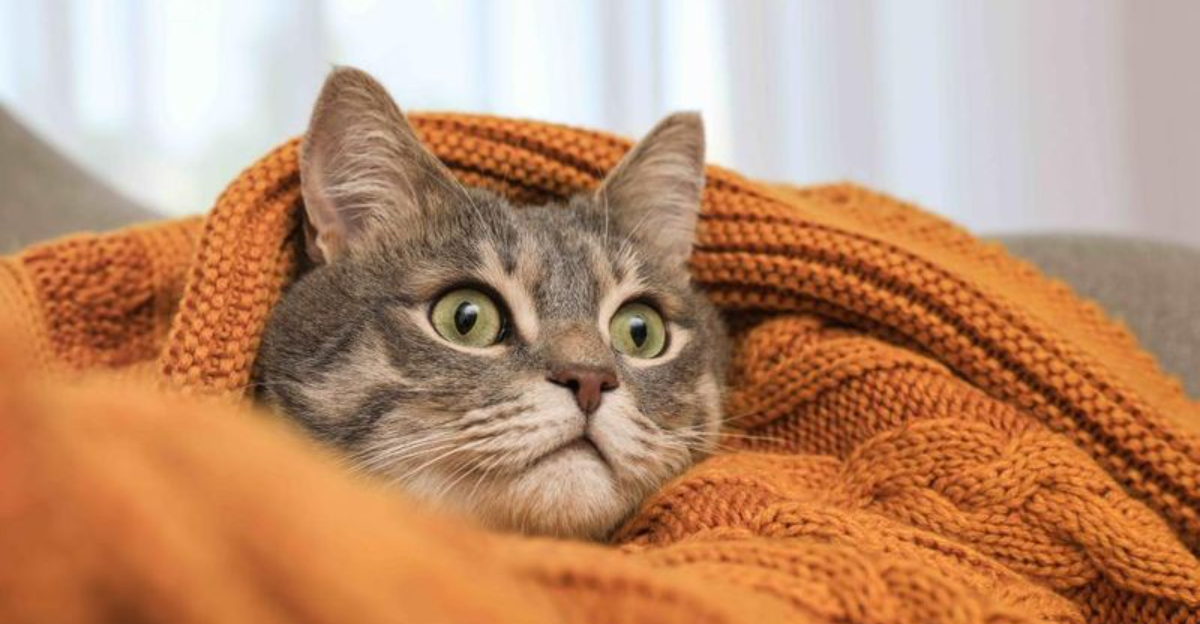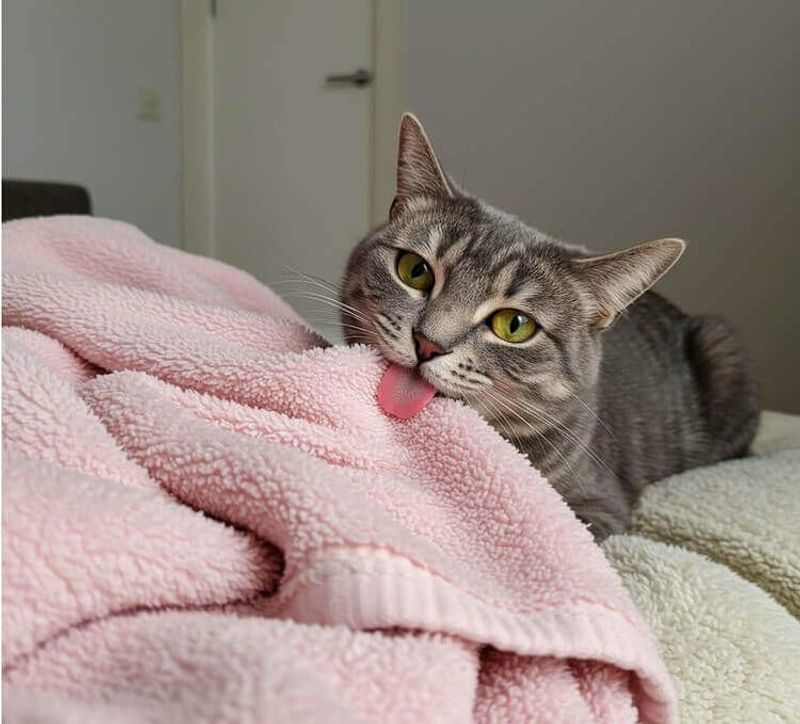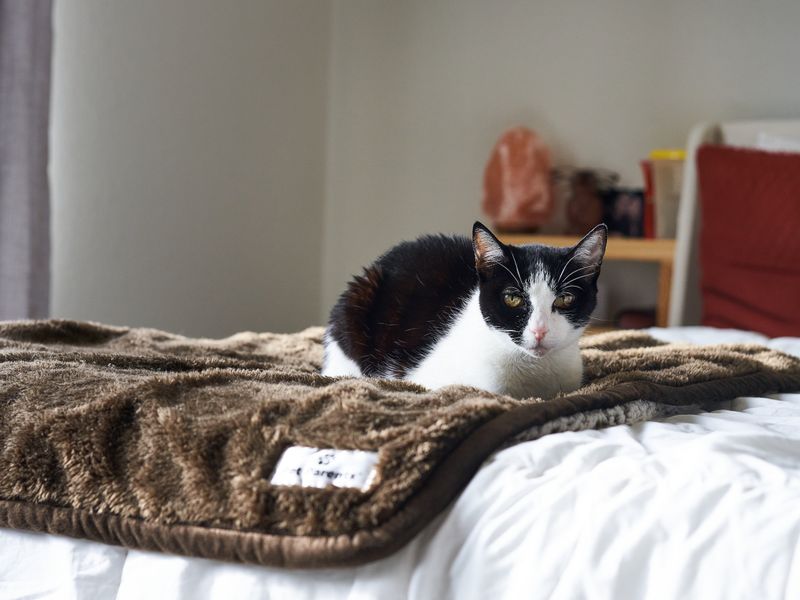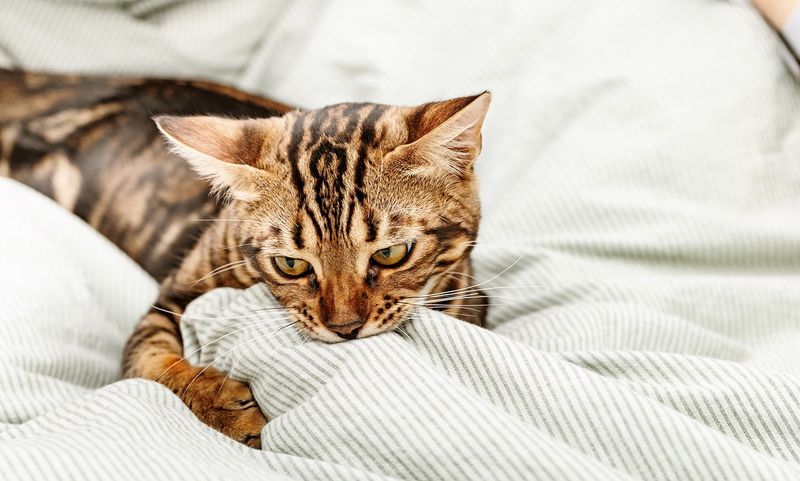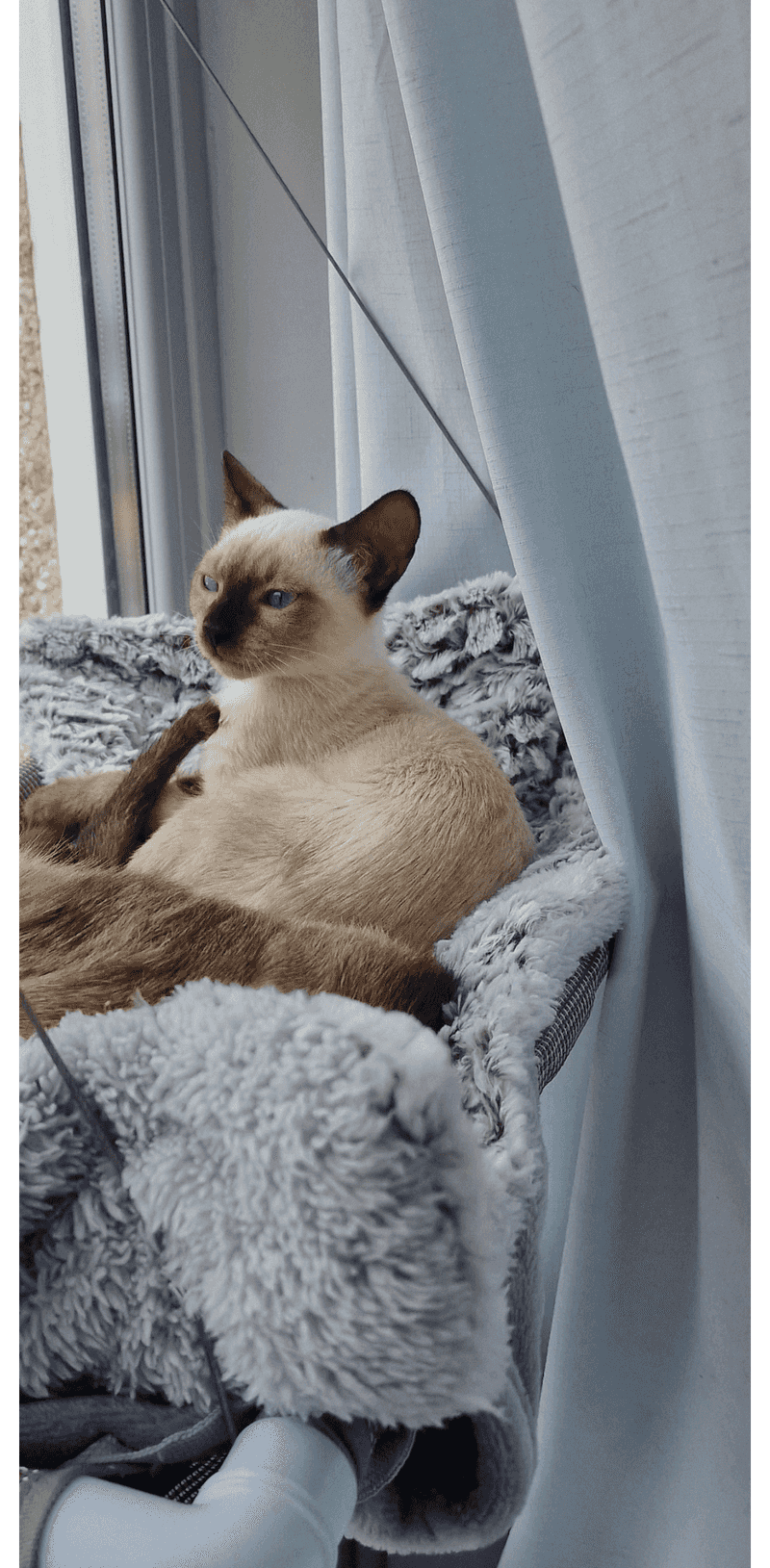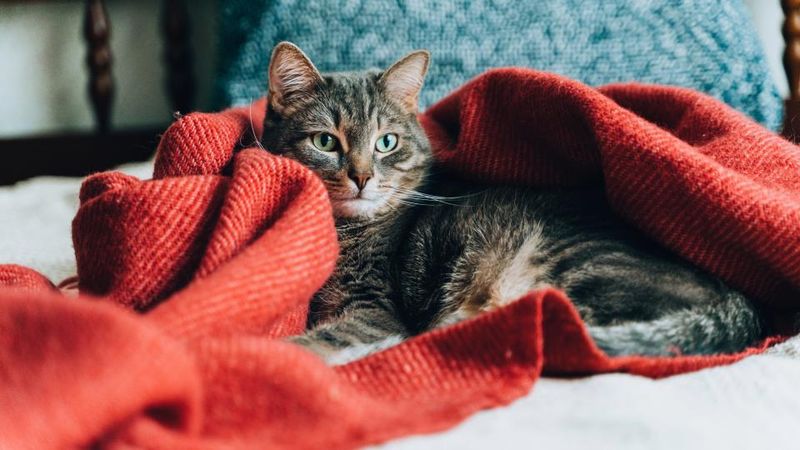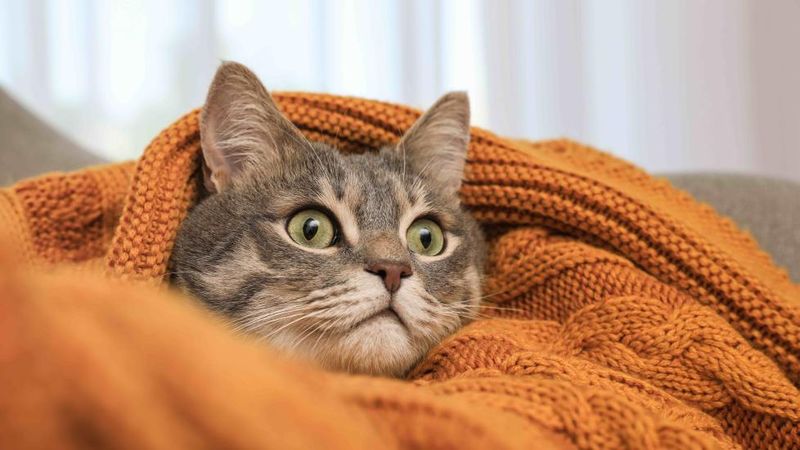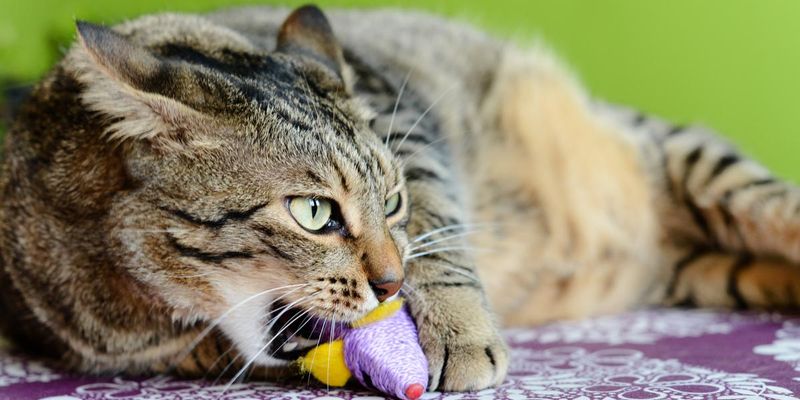📖 Table of Content:
You’ve probably caught your cat curled up on a blanket, eyes half-closed, purring softly—only to realize they’re gently suckling on the fabric like a nursing kitten. While it might seem unusual or even adorable, this behavior often leaves cat parents wondering: is this normal, or is something more going on? If your grown feline is still showing signs of kitten-like nursing, you’re not alone.
Blanket suckling is surprisingly common, especially in indoor cats, and it’s usually a sign of comfort rather than cause for alarm. However, it can also be a behavioral clue—one that reflects your cat’s early life, emotional state, or even their breed. Understanding the reasons behind this habit can help you support your cat’s needs more thoughtfully.
From early weaning to stress relief, there are several reasons adult cats may continue this seemingly infantile behavior. Let’s explore the top seven causes, so you can decide if your cat’s suckling is harmless or something worth addressing.
1. Early Weaning
Many adult cats who suckle on blankets were separated from their mothers at too young an age. This premature weaning can interrupt their normal development, leaving them with lingering kitten behaviors like nursing. A lack of maternal comfort during those early weeks often results in a cat seeking out similar sensations later in life. Soft fabrics, especially ones that retain their owner’s scent, serve as a comforting substitute for mom. Cats in this situation typically display this behavior consistently and find it deeply soothing. The action provides a sense of safety they were denied during kittenhood. In most cases, it’s a long-lasting behavioral imprint from their earliest days.
2. Comfort and Security
Suckling can be a deeply calming act, and for some cats, it becomes a cherished self-soothing ritual. Much like a person cuddling with a favorite pillow, cats may instinctively turn to blankets for warmth and reassurance. These soft textures replicate the coziness of snuggling with their littermates or mother. When a cat feels safe and relaxed, suckling becomes a way to deepen that contentment. This behavior is often seen during rest periods, like before or during sleep. It’s their way of entering a tranquil, almost meditative state. Over time, suckling becomes a comfort habit linked to positive, peaceful moments.
3. Stress or Anxiety
Behavioral responses to stress vary widely in cats, and suckling is a common one. Major changes—like a move, new baby, or added pet—can disrupt their sense of stability and trigger anxious habits. Blanket suckling offers a repetitive, rhythmic motion that helps reduce tension. It’s a feline version of deep breathing or meditation, easing their nervous energy. Some cats may also pair this with hiding or excessive grooming. If the behavior intensifies during chaotic times, it’s likely a stress-driven mechanism. Paying attention to environmental triggers can help identify the root of the anxiety.
4. Breed Traits
Certain cat breeds are genetically predisposed to more clingy and kittenish behavior—including suckling. Oriental breeds like Siamese, Tonkinese, and Burmese are particularly known for their emotional sensitivity. These cats often form strong bonds with their humans and crave physical comfort. It’s not unusual for them to display more “needy” behavior well into adulthood. Their highly affectionate nature means they often seek out soft, warm materials to interact with. Blanket suckling in these breeds is not just common—it’s practically expected. Understanding your cat’s breed tendencies can help normalize the behavior and reduce worry.
5. Habit Reinforcement
Over time, what starts as a one-off behavior can evolve into a regular habit if it’s comforting and uninterrupted. Cats are creatures of routine, and repeated experiences that feel good are likely to stick. If your cat finds blanket suckling soothing and no one discourages it, it naturally becomes ingrained. Even mild reinforcement—like being gently petted while suckling—can affirm the behavior. Because it’s not harmful in most cases, many owners don’t intervene, which allows it to become part of daily life. The longer it continues, the more instinctive it becomes. Essentially, your cat is practicing a form of self-rewarding behavior.
6. Attention-Seeking
Sometimes, cats figure out that certain behaviors get them noticed—and they lean into it. If you’ve ever laughed, pet, or even scolded your cat while they were suckling, they may have associated the act with attention. While it might not seem like a big deal, cats are clever in their own way and can repeat actions that yield results. For cats craving interaction, even a scolding can feel like engagement. The blanket becomes a performance prop of sorts, helping them initiate contact with you. Although less common than the other causes, attention-seeking suckling does happen. Watch your reactions—they could be reinforcing the cycle.
7. Medical or Nutritional Deficiency
In more serious cases, blanket suckling may signal an underlying medical or nutritional issue. Some cats develop pica, a condition where they eat or chew non-food items—often driven by deficiencies or gastrointestinal problems. If your cat begins chewing or ingesting fabric instead of just suckling, it’s time to see a vet. They may be lacking fiber, vitamins, or other essential nutrients. Behavioral symptoms like compulsive licking or unusual appetite changes often accompany this. While rare, ruling out physical causes is important if the suckling behavior seems excessive or harmful. A health check can bring peace of mind—or identify a treatable issue early.
